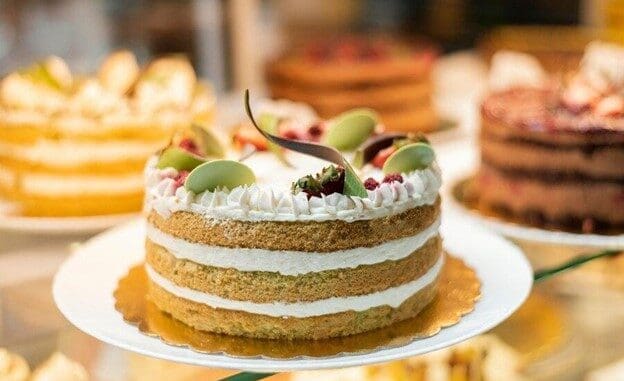
Indian bakeries are an important part of the country’s cultural legacy. For generations, baking has been an important element of Indian culture. Plus, cakes and other baked goods must be delicious treats in Indian homes. Bakers can now sell cakes with innovative hybrid flavours. In this article, we discuss India’s rich cake culture and the evolution of bakeries.
Moreover, when the Indus Valley Civilization invented ovens thousands of years ago, Indian baking began. Making cakes and other baked goods is a cultural tradition. Indian desserts are still popular despite improvements in the baking process.
The Importance of Cakes in Indian Culture
For any Indian occasion, cakes are a necessity. These are quickly becoming standard fare for many types of celebration cakes, including wedding and birthday cakes. Due to their growing cultural significance. Moreover, cakes for birthdays have come to stand for affection and consideration. Blowing out the candles, expressing a wish, and assembling around a cake is a beloved custom that strengthens the community.
India’s Evolution of Cake Variety
Indian bakers have transformed classic Indian meals to create an incredibly delicious selection of desserts. Indian bakers have made cakes that are both tasty and traditional-pleasing to people all around the world, using traditional ingredients and procedures.
Revitalized Classical Indian Flavors
Cake lovers are no longer forced to choose between vanilla and chocolate. Indian cake chefs have expertly created delectable cakes infused with cardamom, saffron, rose, mango, and pistachio. These tastes transport one back to India’s foodie heritage.
Innovative Approaches for Decorating Cakes
The amazing cake decorations and designs made by Indian bakers showcase incredible inventiveness. Customers may now purchase edible flowers, hand-drawn patterns, gorgeous sugar sculptures, and personalized cake toppers. In India, cakes decorated with elaborate henna patterns and Bollywood themes are culinary works of art.
The Influence of Indian Culture on Bakeries
Indian bakeries develop a sense of community, connection, and the empowerment of regional artists and farmers. These shops have been crucial to the neighbourhood’s social and economic growth, in addition to being locations to buy delicious sweets.
Community-Based Bakeries in the Neighborhood
Local bakeries serve a diverse range of patrons from different backgrounds. These businesses develop a sense of community by providing neighbours with refreshments like tea and freshly baked cake. They promote remembrances, friendships, and stories alike.
Bakeries help Regional Dessert Makers and Artisans
India’s cake culture is a terrific method for farmers and craftsmen to market their products. By using items that are sourced locally, bakeries help farmers and promote sustainability. In addition to adding individuality to the cake, using regional craftspeople for cake decorations and packaging supports the continued production of traditional handicrafts.
Social Media’s Impact on Growing Bakery Businesses
Social media’s rapidly increasing growth has helped Indian bakery enterprises. Bakeries may reach a broader audience by showcasing their delectable treats through visually appealing images and clever text. On social media, bakeries have the opportunity to showcase their abilities and develop a devoted audience.
Opportunities and Difficulties for Indian Bakeries
Opportunities and risks accompany growth for the cake sector in India. The Indian baking industry is facing opportunities as well as challenges due to the entry of new competitors, changing customer preferences, and stricter regulations.
International Bakery Chains’ Competition
Global corporations are putting pressure on India’s tiny bakeries. Globally operating giants encourage product uniformity, brand awareness, and limitless prospects. Indian bakeries may set themselves apart from the competition by showcasing their regional ties, personalized service, and distinctive flavours.
Balancing Traditional Values with Modern-Day Consumer Wants
Indian bakers currently have the problem of utilizing contemporary products and methods to satisfy their clientele’s changing demands. Indian culinary tradition has to experiment with new tastes, textures, and patterns while still honouring its history to advance. The extensive menu of a bakery has something for everyone, whether you’re searching for something familiar or something new.
Standards for Food Safety and Regulatory Concerns
For cake sellers in India, new and strict food safety standards have made their lives more challenging. Small bakeries still have to spend a lot of money on the equipment required to meet these requirements. Bakeries that place a high priority on food safety and quality may differentiate themselves from the competition for consumers who are worried about their health.
In the end, the cake shop and the individuals who bake are the true stars of Indian cake. Indian bakeries, with their unique designs, traditional recipes, and involvement in community development, have become an integral part of the country’s culture. These bakers never stop surprising consumers with their delicious cuisine, even in the face of obstacles and development chances. Moreover, this information helps you a lot if you are searching for cake delivery in Manipal, India. A nation known for its sweet tooth and culinary heritage has unique cake traditions that unite its people.

Finding the delicate balance between preserving cultural heritage and embracing modern educational demands is crucial, especially in a diverse country like India. This article beautifully captures the essence of this challenge. However, amidst this discussion, let’s not forget about the importance of inclusive education for all, including those with special needs. Places like Special Needs Schools in JP Nagar, Bangalore, play a vital role in ensuring that every child, regardless of their abilities, receives quality education. It’s essential that we integrate inclusive practices into our educational frameworks to truly achieve progress while honoring our rich cultural tapestry.